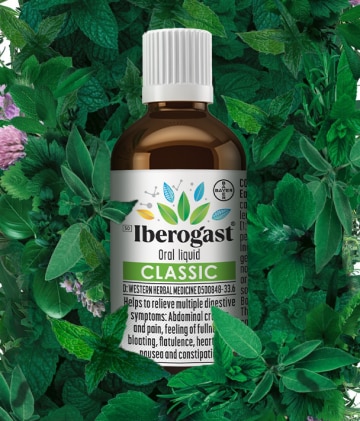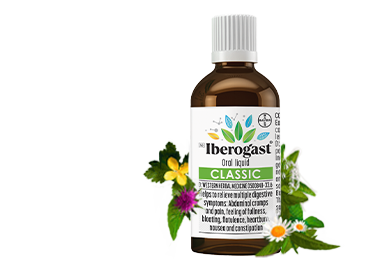Making Iberogast®
Health from herbs – then and now
Herbal medicine is one of the oldest forms of medical treatment known to man and was already well-established in the ancient world. Homer, for example, described the Egyptians’ legendary healing arts that used herbal medicine. Monastic medicine based on medicinal herbs had its heyday in the Middle Ages. The monks recorded details on medicinal herbs in their writings which became a foundation for modern phytotherapy. From these ancient beginnings, herbal medicines have become an intrinsic part of medical science.
Today, however, experience passed down through the ages is no longer considered adequate evidence. The World Health Organization advocates for safe and effective medicinal products and has established worldwide standards for herbal medicinal products and treatments. Like all medicines for human use, herbal remedies must also be proven to be therapeutically effective and safe with a good benefit-risk ratio. Additionally, a crucial factor leading to reproducibility of the product is a closely monitored, impeccable production process.
Plant-based medicine and its production requirements
Production of plant-based medicines is complex, as plants are naturally growing organisms and cannot be synthetized. Plants need certain nutrients and just the right amount of water and light in order to flourish. They often produce the most wanted beneficial substances only at certain points in their life cycle, thus expertise is needed to know the right time point of harvest. The extracting has to follow a standardised process to result in an reproducible extract, and to make things even trickier, each plant has its individual amount of substances, which largely depends on where the plant grows, the conditions of growth in that location (soil, climate, etc.), and how well the plant is handled after being harvested.10
For example, the major and unique component of Iberogast® is bitter candytuft (Iberis amara). About 40,000 kilograms of the medicinal plant are processed annually for the production. Bayer cultivates the plant on an area of about ten football fields (seven hectares). The exact harvest time is determined during the flowering period in June and July: if the timepoint is right, the ripe plants are harvested over several weeks. In addition to bitter candytuft, Iberogast® contains a range of medicinal herbs that must be gently dried before they can be extracted and combined with the other ingredients. This process also requires an extremely high degree of specific knowledge and expertise.
Cream-of-the-crop production10
From the field to the bottle, Bayer closely supervises the rigorous standardized manufacturing process and at all times maintains the exacting production standards.
Iberogast® plants are grown and harvested according to the so-called Good Agricultural Practice (GAP), which means that the growing conditions are standardised and controlled. Bayer also supervises the harvest, and each medicinal herb is carefully inspected before being processed – everything to ensure the highest quality and prevent any potential contamination.10 All the individual medicinal plant extracts are acquired by applying optimised and constantly improved methods, thoroughly tested and mixed in a precisely defined order with monitored proportion of quantities. Quality is checked at each step during the multistep production process. This standardised phytopharmaceutical product only goes into retail upon quality release to ensure that Iberogast® has the same amount and composition of effective substances at any time.
Once production and all quality control standards have been met, the treatment is bottled, sealed and packaged on a state-of-the-art production line. From cultivation to packaging, your bottle of Iberogast® undergoes around 50 different quality checks, so that it can bring you strong and fast relief from multiple digestive symptoms.
The result? Iberogast® is an effective, high quality product that is used by an estimated 52 million people in 30 countries worldwide. It meets the highest quality requirements and toxicological safety standards, and it is one of the most studied OTC herbal medicines with proven efficacy.
Investing in sustainability10
Bayer follows the highest standards and is committed to sustainability. It harvests quality medical plants and produces the extracts with care. The nine medicinal plants used in Iberogast® are harvested carefully and responsibly in a range of locations around the world.
Iberogast®
Disturbances in the gastrointestinal tract are usually not only extremely unpleasant and associated with numerous complaints, they often make a normal everyday life even harder. It’s good that there is Iberogast®: The combination of nine medicinal plants targets both the underlying causes and the annoying symptoms.









